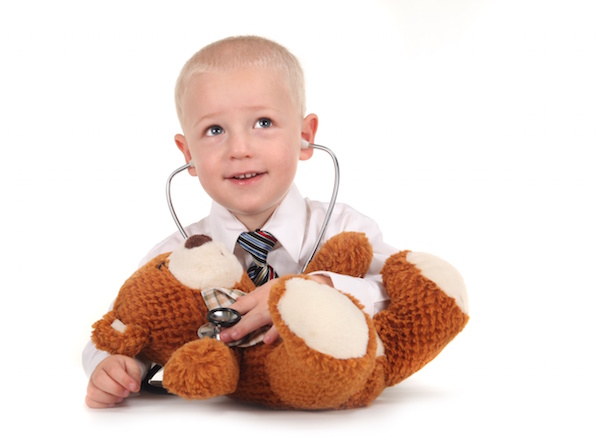
TUESDAY, Nov. 23 (HealthDay News) — IQ is typically a good predictor of academic performance, but not necessarily in autistic children, a new study shows.
Researchers tested the IQs and reading, spelling and math abilities of 30, “high-functioning” 9-year-old autistic children. Researchers also assessed the children’s social functioning through parental and teacher reports at ages 6 and 9.
In 90 percent of the children, their academic achievement diverged substantially from predictions based on their intelligence-test scores.
So did the autistic kids do better or worse than expected?
The answer: both. Some did more poorly on academic tests than their IQs would indicate, while some did better than their IQs would suggest.
The breakdown was about half and half. Eighteen children did better on at least one academic test, particularly spelling and word recognition, than their IQs would predict, while 18 did worse on each test, suggesting a possible learning disability in that specific area.
“Ninety percent of the kids had a discrepancy. We didn’t expect it to be such a common occurrence,” said study author Annette Estes, a research assistant professor at the University of Washington Autism Center in Seattle. “In most typically developing kids, these discrepancies are very, very rare.”
The study was published online in the Journal of Autism and Developmental Disorders.
IQ, or intelligence quotient, is assessed using standardized tests. An average score is 100, and normal is anything 15 points above or below 100. Prior research has shown that in the general population, IQ scores are a good predictor of academic performance.
Early diagnosis and early behavioral interventions are helping kids with an autism spectrum disorder make rapid strides that decades ago would have been unlikely, Estes said.
Up to 70 percent of autistic children are considered high-functioning, which in this study was defined as an IQ of 70 or above, although most had an IQ in the average or above-average range.
Researchers found no association between problem behavior and academic achievement.
But social skills did seem to matter in how well kids did at school. Children who had higher social skills at age 6, including such skills as introducing themselves to others and understanding compromise and cooperation, had better word reading skills at age 9.
The next step for researchers is to determine how the children actually do in the classroom, Estes said.
Questions she’d like to answer are whether teachers and others recognize the children with the higher IQs and academic abilities, or if social and communication difficulties hold them back, and, conversely, do they identify kids who have a learning disability in one particular area?
“Some may be really excellent at math, but because of attention problems that might not be recognized,” Estes said. “Or, if the child seems to be doing pretty well, maybe people aren’t aware that they are struggling in certain areas.”
Future studies are also needed to determine if low achievement is connected to specific learning disabilities and to better understand high acheivement in children with autism spectrum disorder, the researchers said.
Amy Keefer, a clinical psychologist at the Kennedy Krieger Institute’s Center for Autism and Related Disorders in Baltimore, said she often sees such divergences between intelligence scores and certain academic skills in her patients with an autism spectrum disorder.
“Anecdotally, I see it happening a lot,” Keefer said. “It highlights how complex the neurocognitive profile is for high-functioning kids with ASD and that complexity is what leads to these unusual patterns in academic achievement.”
Reading comprehension is a common area of struggle for some kids with autism, Keefer said. Though some may be excellent readers as far as recognizing words, they often have more difficulty understanding what they’re reading.
In addition, while some kids with autism are very good at math, they excel in doing calculations but can get thrown off when the same math problem is presented not in numbers but as a “verbal problem.”
Figuring out how kids with autism learn best is critical, Estes said.
“Children with autism, later in development are thought to be at higher risk of anxiety or depression,” Estes said. “Academics is a potential source of mastery and self-esteem that, if enhanced, could buffer them from one of those challenges. And [academic success] has implications for being able to be successful later on in higher education and jobs.”
More information
The U.S. National Institute of Neurological Disorders and Stroke has more on autism.

